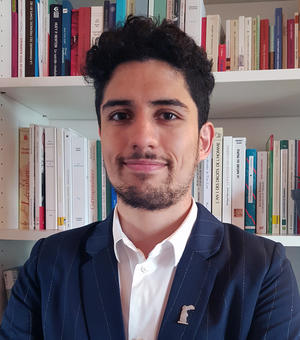Uziel González-Aliaga
Research Topic
My research examines the participation of the Southern Cone of Latin America in the Bretton Woods international monetary system (1945-1971). This post-war global financial system stands out as the only regime derived from international deliberation - which is why there are frequent calls for its revival. At the United Nations Monetary and Financial Conference of June 1944, commonly known as the Bretton Woods Conference, more than 40 countries agreed on the principles and institutions that would govern the system, notably the International Monetary Fund (IMF) and the International Bank for Reconstruction and Development.
Originally, the Bretton Woods system was based on principles of cooperation and non-discrimination, aiming to revive international trade on a multilateral basis. To achieve this, post-war planners implemented “fixed but adjustable” exchange rates, with the U.S. dollar as the only currency convertible into gold, along with capital controls. However, the system quickly evolved in ways that were not anticipated by post-war policymakers like Lord Keynes. The 1947 sterling crisis led the system’s leaders to discourage rapid and worldwide currency convertibility. Full convertibility for current account transactions was not achieved until late 1958, and even then, only for a limited group of Western European countries participating in the European Payments Union (EPU). As the system matured, it became plagued by new and complex challenges (i.e., the Triffin Dilemma), which contributed to the regime’s collapse in the early 1970s. On August 15, 1971, President Nixon unilaterally ended the dollar’s convertibility into gold, breaking one of the core principles of the international system. The demise of post-war international monetary rules led to today's system, characterized by floating exchange rates, capital mobility, and independent monetary policies (cf. Dilemma not Trilemma).
As this narrative suggests, discussions of the post-war international monetary regime have largely centred on a small group of North Atlantic, developed countries. The history of Bretton Woods is often portrayed as the history of the Group of Ten (G10) rather than the dozens of member countries. My DPhil research, however, reveals that the system’s architecture was far more complex when the experiences of developing countries are taken into account.
The participation of the two largest economies in the Southern Cone of Latin America—Argentina and Chile—uncovers previously unstudied aspects of the system. These range from the intensive use of multiple exchange systems in the immediate post-war period to the bilateral strategy pursued by President Juan Domingo Perón in Argentina. In the mid-1950s, both countries began transitioning from trade bilateralism to the multilateralisation of their international payments. Finally, the 1960s show how Argentina and Chile navigated a global system marked by challenges of adjustment, liquidity, and confidence. This navigation was further influenced by state-led industrialization processes in both countries, which prompted a series of balance of payments constraints and called for support from multilateral institutions, particularly the IMF.
My research draws on a rich array of historical records from multiple countries and languages to reconstruct the participation of Southern Cone countries in the Bretton Woods system. These sources include detailed documentation from the Ministries and Central Banks of Argentina and Chile, as well as key records from international agencies like the IMF and ECLA and major partners: the United States (NARA II), the United Kingdom (Kew), and France (Banque de France).
I am broadly interested in Contemporary Latin American History, specifically economic crises, monetary policies, and political economy during the 20th century. As a DPhil Researcher, I contribute to the GloCoBank project. The Clarendon Fund kindly supports my time in Oxford.
Supervisor: Professor Catherine Schenk
Teaching Experience
I have been a TA and lecturer on Economic History and the Economic History of Latin America courses at different Chilean universities at the undergraduate and master's levels. At Oxford, I have tutored the paper Quantification in History (BA in History).
Conferences, Seminars, and Workshops
I have discussed my research in seminars and summer schools at different venues in Latin America, the UK, and Europe. I recently presented progress on my DPhil in Oxford, Warwick, Glasgow, Geneva, and Coimbra. I will soon participate in the VIII Latin American Congress of Economic History (Montevideo, Uruguay) and the World Economic History Congress (Lund, Sweden).
Publications
- «El sistema bancario y financiero modern en Chile: orígenes y evolución histórica, 1970-2023», coauthored with Sebastián Álvarez, in Historia Económica de Chile: Más allá del Crecimiento, Fondo de Cultura Económica (forthcoming 2024). [Spanish].
- «De La Autonomía a La Cooperación. El Cambio De Targeting Del Banco Central De Chile En La Década De 1930». Investigaciones De Historia Económica, Vol. 17, n.º 4, Sept. 2021, pp. 47-57, DOI. [Spanish].



